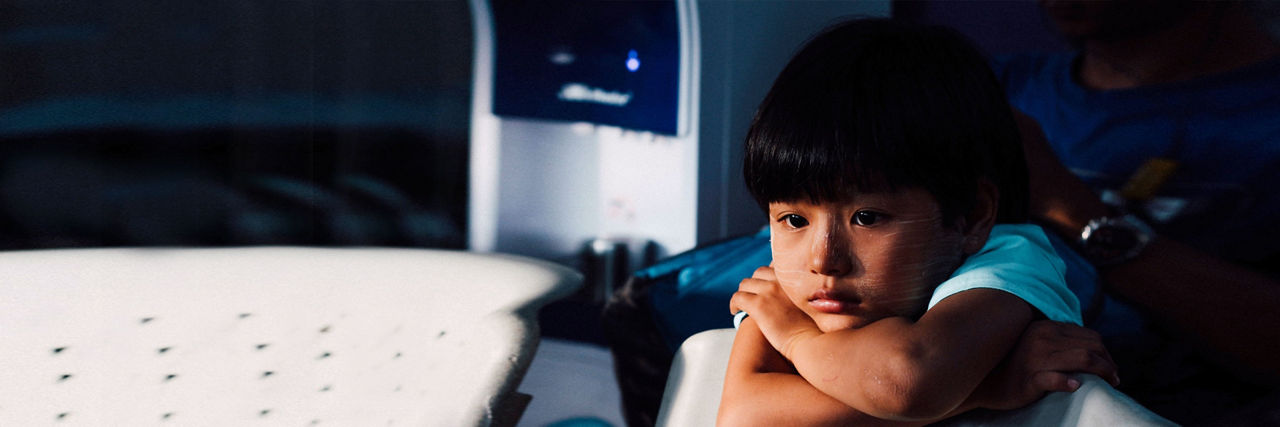Danone Specialized Nutrition (Malaysia) Sdn Bhd supports exclusive breastfeeding for your infant’s first six months of life. After six months of age, infants should receive age-appropriate complementary foods while breastfeeding continues for up to two years of age or beyond. Consult your doctor before deciding to use infant formula or if you have difficulty breastfeeding.
The Helicopter Parenting Style - Harmful Effects
“We need to know that our children have the wherewithal to get up in the morning and take care of themselves," says former Stanford University Dean Julie Lythcott-Haims. Find out what else she has to say about helicopter parenting and how we can help our children be self-reliance young adults.
Do you say “we” when in reality you are talking about your child? Are you quick to argue with your child’s teachers, coaches and other mentors? Do you do your child’s homework for him? Have you realised that the effects of helicopter parenting can be damaging to your children?
If you answered “yes” to these questions, then you probably can be categorised as a “helicopter parent“, or in other words, “a parent who takes an overprotective or excessive interest in the life of his/her child”.(1)
Helicopter parents may think they are doing their kids a huge favour by getting overly involved in their lives. But they may want to take heed of the former Dean of Stanford University Julie Lythcott-Haims’ warning that in reality, the effects of helicopter parenting may actually be ruining their children’s lives.
The effects of helicopter parenting on kids: “Academically brilliant but incapable of taking care of themselves”
The Washington Post reports that during her 10 years as dean of freshmen at Stanford University, Lythcott-Haims noticed a disturbing trend among new students. While they were academically brilliant, over the years, more and more of them seemed helpless at adapting to the challenges of the world. The effects of helicopter parenting are damaging to our children.
According to the report: “At the same time, parents were becoming more and more involved in their children’s lives. They talked to their children multiple times a day and swooped in to personally intervene whenever something difficult happened.”
Lythcott-Haims elaborates on her decade-long observations in her book How to Raise an Adult: Break Free of the Overparenting Trap and Prepare Your Kid for Success.
She believes that by trying too hard to ensure their kids perform well and by protecting them from hardship, failure and disappointment leaving them unable to understand the meaning of perseverance. Parents in affluent communities have actually set their kids up to fail socially. These efforts from parents work against raising self-reliance children.
In other words, “Such ‘overhelping’ might assist children in developing impressive resumés for college admission, but it also robs them of the chance to learn who they are, what they love and how to adapt and face the challenges in the future.
Raising a generation of self-sufficient youth
Lythcott-Haims’ advice is clear as a bell.
“Teach them the skills they’ll need in real life and give them enough leash to practice those skills on their own.” Also make them do tasks around the house, as “chores build a sense of accountability. They build life skills and a work ethic,” she said. If you are wondering how to raise a self-reliance child, doing small things like these can make a huge difference.
It’s natural for parents to want their children to succeed in life. And no one wants to raise a monstrous brat. But parents must not lose sight of the fact that an important part of a child’s future success is teaching them the value of adaptability; to live without us, or our help. Ultimately, we should all want to raise a self-reliance child, teach a child how to be self-confident, let him stand on his own two feet, and, one day, learn to fly.
Watch the video below for Lythcott-Haims’ interview with CBS This Morning, where she talks about her book and her concerns about today’s young adults.(2)
Watch the video here:
Article sourced from theAsianparent Malaysia:
The effects of helicopter parenting, explained by a Stanford Dean
Sources:
1 http://www.oxforddictionaries.com/definition/english/helicopter-parent
2 https://sg.theasianparent.com/how-not-to-be-a-helicopter-parent/

Connect with our team of experts
We provide advice and support for you on your parenthood journey.

